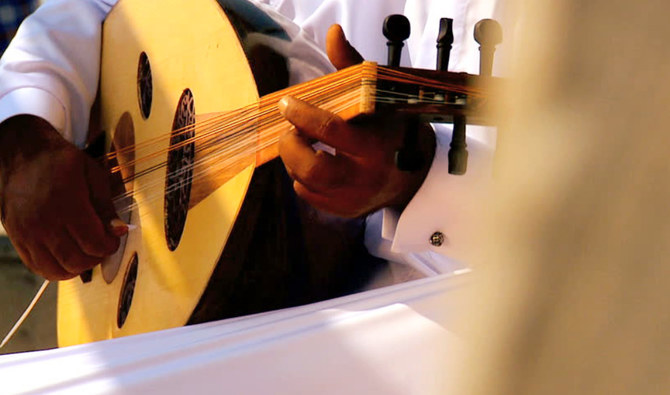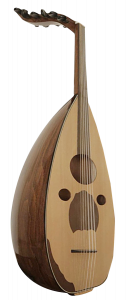
- ARAB NEWS
- 09 Jul 2025

JEDDAH: Saudi Arabia’s Music Commission is establishing an institute to train the country’s musical talent.
Bait Al-Oud seeks to be a learning center for musicians so they can get the required training in playing traditional Arabic instruments and be educated about the instruments’ role in developing the region’s music culture.
The oud, which dates back more than 3,000 years, is one of the oldest and most important stringed instruments in the Arab world’s musical heritage and it has played a significant role through history.
The commission aims to develop the institute to be a globally recognized center, spread awareness about Arabic musical instruments, specifically the oud, and preserve the heritage of Arabic music.
“The oud is one of the most important musical stringed instruments,” oud player Hasan Iskandrani told Arab News. “It has been called the ‘sultan of instruments’ and is usually used by composers in shaping their melodies.”

Traditional Arabic musical instruments such as the oud, duf, rebab, and mizmar, which are used in many different celebrations in the Kingdom, have played a major role in establishing the musical culture of the country and its different forms of musical expression.
There are different types of oud – including Iraqi, Syrian, Egyptian and Turkish — and it is played in different styles across the region.
In recent decades, the Kingdom has become home to talented composers, singers, and oud players.
Many people in the Kingdom enjoy the work of Abadi Al-Jowhar, who is known as the “Octopus of the Oud.”
Alongside Al-Jowhar are Talal Salamah and Aseel Abu Bakr Saleem who, to this day, are influencing an emerging new generation of Saudi oud players.
The oud is distinctive for being fretless and pear-shaped. It is traditionally made from lightwood, has a short neck, and is normally built with 11 strings.
Being fretless, the oud is considered a versatile instrument that gives musicians the freedom to produce more fluid notes without having to retune.
And, unlike other string instruments which typically have one large hole in the center, the oud can have up to three holes, which gives it its distinctive and mesmerizing tune.
This makes it ideally suited for musicians to play the maqam, a system of melodic structure used in traditional Arabic music.
And, like other ancient musical instruments, the oud has its own fans and admirers who enjoy listening to its tunes.
But, had it not been for some great musical maestros, the legacy of the oud would have probably been lost. One cannot talk about the instrument without mentioning the legends who made it what it is today.
The oud has passed through prominent musicians, from the “King of Oud” Fared Al-Atrache, to Marcel Khalifeh in Lebanon, Munir Bashir and Naseer Shamma in Iraq, and Mohamed Al-Qasabgi in Egypt.
There are many beliefs about where the instrument originated from. It is believed that it evolved from the Persian barbat and was used during the Kassite period and Babylon in Mesopotamia, which later made its way to Europe through North Africa.
The institute, which will be run by an elite group of musicians, also aims to be a regional hub for Saudis of all ages to learn and develop techniques to play Arabic musical instruments.
“The Bait Al-Oud Institute will contribute to the development of the various types of stringed instruments. In addition, it will encourage the development of young music talent,” said Iskandrani. “Through the institute, it will be a forum for great music legends and new emerging musicians to share ideas, experiences, and culture for continuous development.”
The institute will also act as a platform for musicians to share and perform their musical projects with audiences who enjoy listening to oud performances.